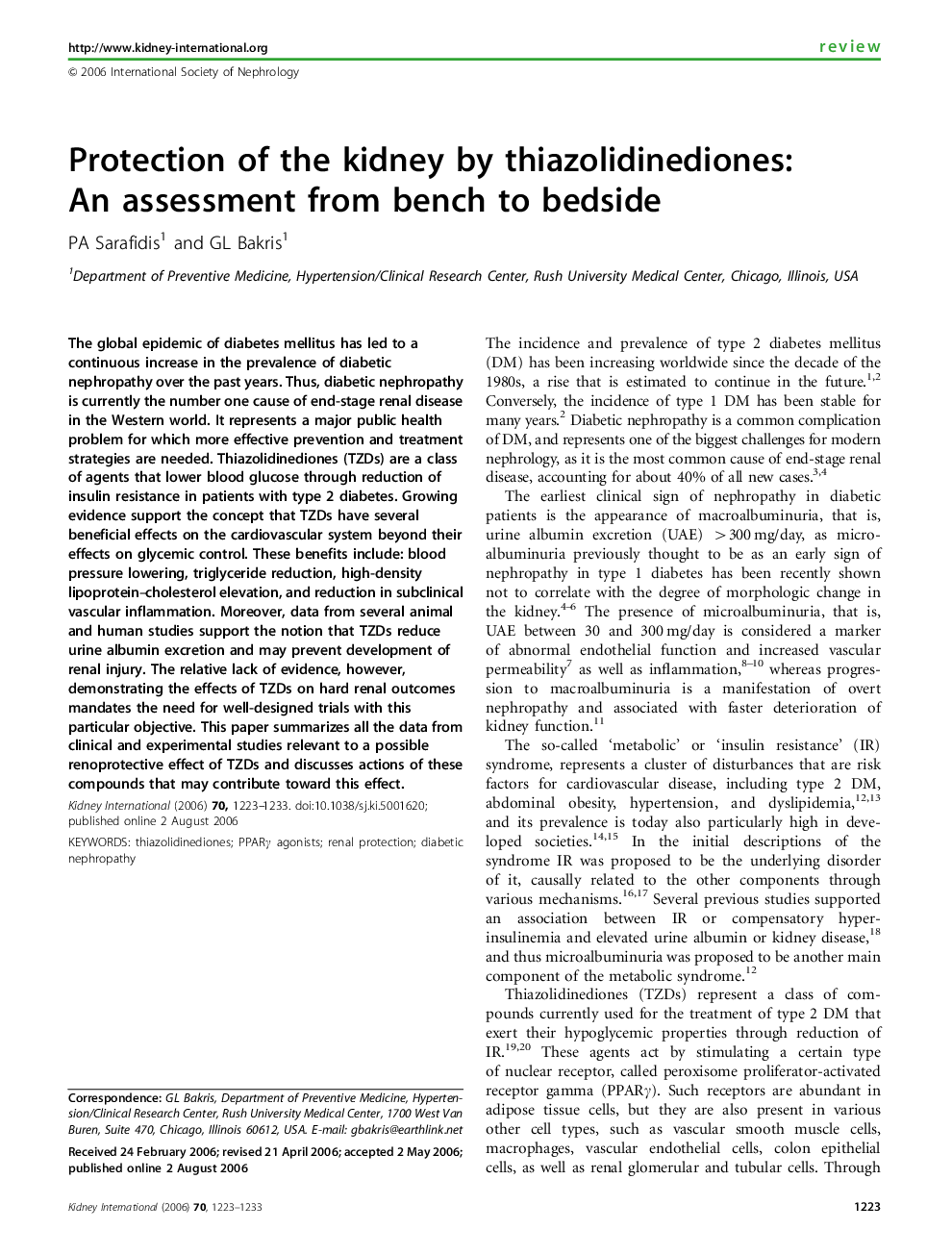| Article ID | Journal | Published Year | Pages | File Type |
|---|---|---|---|---|
| 3885206 | Kidney International | 2006 | 11 Pages |
The global epidemic of diabetes mellitus has led to a continuous increase in the prevalence of diabetic nephropathy over the past years. Thus, diabetic nephropathy is currently the number one cause of end-stage renal disease in the Western world. It represents a major public health problem for which more effective prevention and treatment strategies are needed. Thiazolidinediones (TZDs) are a class of agents that lower blood glucose through reduction of insulin resistance in patients with type 2 diabetes. Growing evidence support the concept that TZDs have several beneficial effects on the cardiovascular system beyond their effects on glycemic control. These benefits include: blood pressure lowering, triglyceride reduction, high-density lipoprotein–cholesterol elevation, and reduction in subclinical vascular inflammation. Moreover, data from several animal and human studies support the notion that TZDs reduce urine albumin excretion and may prevent development of renal injury. The relative lack of evidence, however, demonstrating the effects of TZDs on hard renal outcomes mandates the need for well-designed trials with this particular objective. This paper summarizes all the data from clinical and experimental studies relevant to a possible renoprotective effect of TZDs and discusses actions of these compounds that may contribute toward this effect.
